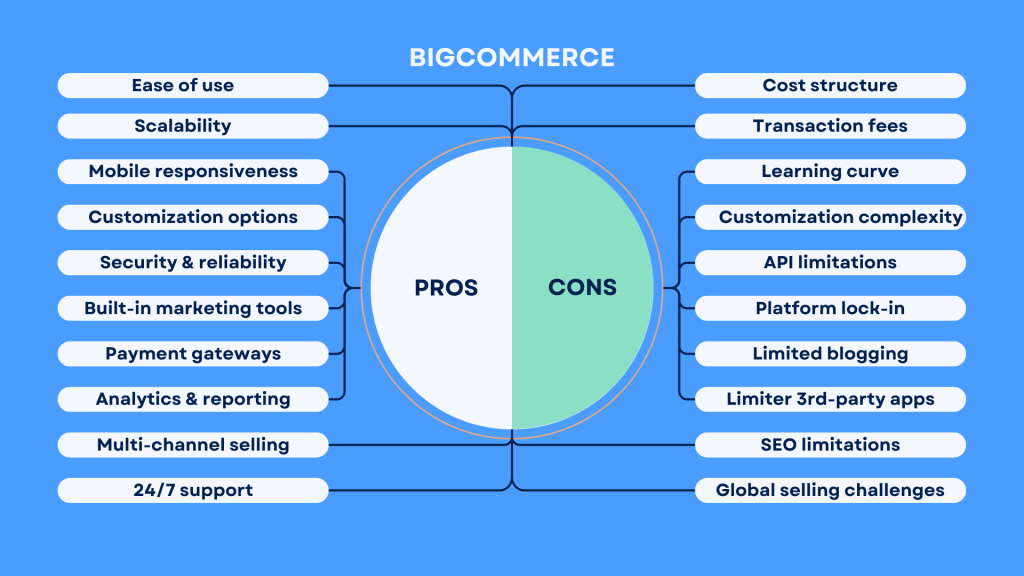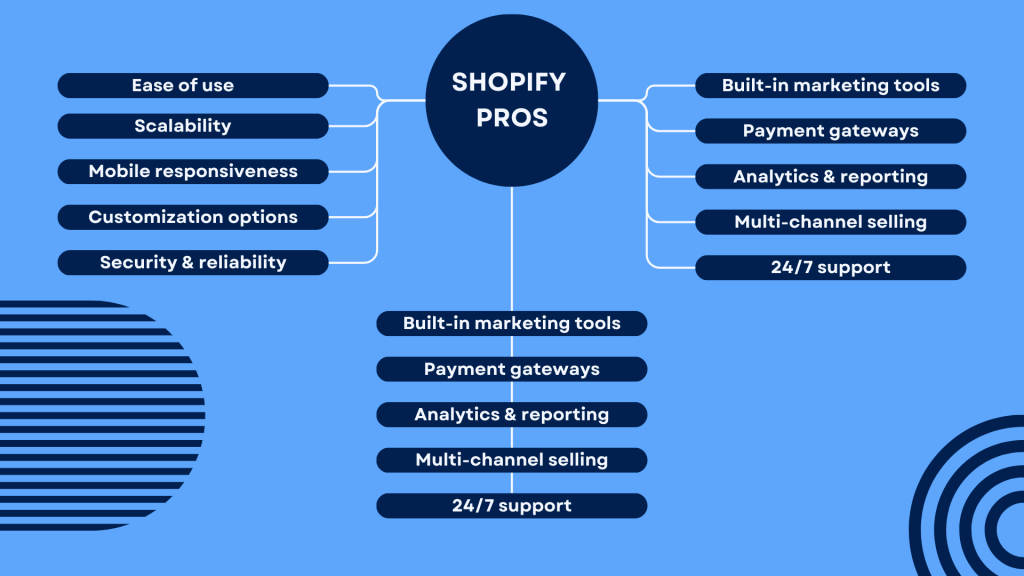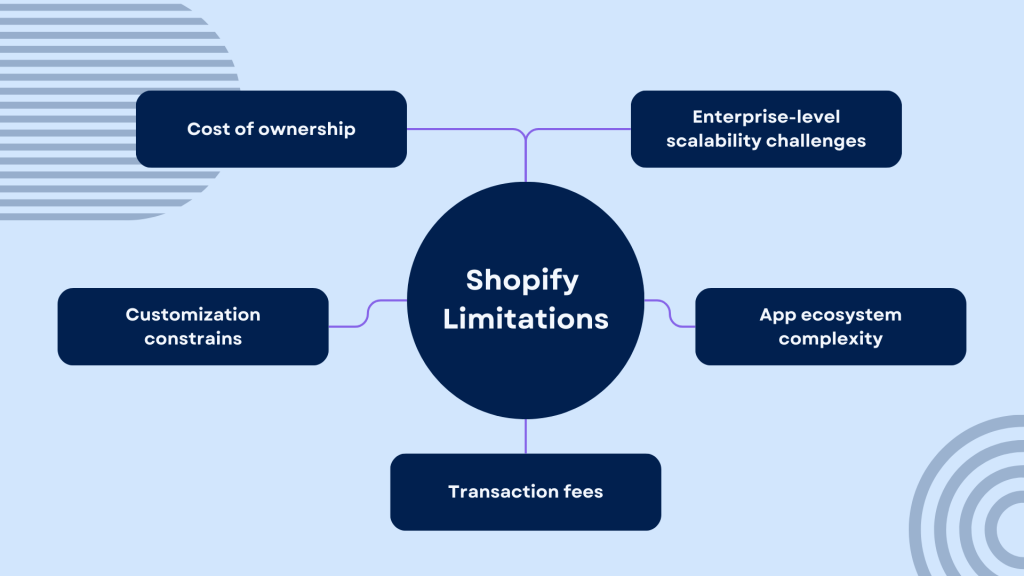Currently, in the world of global and diverse consumers’ demanding expectations, two leading platforms are taking the ecommerce market – BigCommerce and Shopify. These platforms are marketed as all-encompassing solutions for business and are designed for companies of different sizes.
In this article, I will briefly break down the detailing of these two platforms to help you make the best out of its choice pertaining to the specific requirements of a business.
What’s BigCommerce: a quick platform overview
This ecommerce solution was established in 2009 and quickly carved its niche in the intensely competitive global market with its highly comprehensive and adaptable solutions for businesses of all sizes. It provides a handful of instruments that enable anyone, even without profound IT knowledge, to easily create and customize online shops. This is an excellent platform that has professionally developed templates that make the storefront designs match the brands perfectly.
BigCommerce excels not just in website creation but seamlessly integrates ecommerce functionality.
Users can efficiently manage product inventories, process transactions securely, and prioritize mobile responsiveness for optimal user experiences on various devices. Analytics tools provided by BigCommerce empower businesses to track website performance, understand their audience, and refine online strategies. In essence, BigCommerce stands as a comprehensive solution, simplifying the complexities of ecommerce while emphasizing quality and user satisfaction.
Book your seat at our Weekly Public Demo to see how you can integrate BigCommerce with accounting, using Synder, or explore it yourself with a 15-day all-inclusive free trial.

The most prominent features of BigCommerce
The key pros of BigCommerce include such aspects as simplicity, looks, strong ecommerce capabilities, responsiveness, available payment options, business flexibility, and search engine optimization – that makes it an all-in-one solution for businesses of various sizes striving to succeed in the tough ecommerce environment.
Let’s look at them in more detail.
#1 – Ease of use
The top strength found in BigCommerce is the interface since it enables business owners to handle the various aspects of online retail. The platform is easy to set up and administer, which means almost anyone can build and manage an appealing online store, even if they don’t have advanced technological experience. This has proved to be a herculean bonus for start-ups and less established companies who need an online presence without requiring the technical support of an elaborate information technology department.
Related:
How to Start a Business With No Money: Getting off to a Good Business Start With No Cash
#2 – Scalability
Many factors have contributed to the success of the BigCommerce platform, and one of these factors is scalability. Since businesses change and develop, the platform helps to expand them without any problems. BigCommerce fits regardless of whether you are a new company experimenting on the online platform or an established business venturing into the online business market. This – alongside other features – allows businesses to increase their capabilities without worrying about outgrowing the given ecommerce solution.
#3 – Mobile responsiveness
Today, mobile commerce is not just a trend but a necessity, and BigCommerce pays much attention to mobility. Mobile shops on the platform not only work on the desktop but can be accessed from a wealth of different mobile devices. This focus on mobile optimization benefits the consumer experience and creates the best opportunities for entailing the consumers’ purchase loyalty in the age where they turn to their handheld devices to shop.
#4 – Customization options
Brand identity is incredibly important when it comes to ecommerce, and BigCommerce definitely knows this. It possesses a rich set of themes and templates available in the platform for business entities to represent their storefronts uniquely. In particular, it is possible to fine-tune options with tools for design to achieve the desired look and thus guarantee companies will find the aesthetic that matches the needs of their target clients.
For those seeking advanced customization, consider going for headless BigCommerce. This innovative approach allows businesses to decouple their front-end and back-end, enabling unparalleled customization and scalability.
#5 – Secure and reliable
Security is a non-negotiable aspect of ecommerce, and BigCommerce places it at the forefront of its priorities. With SSL certification, regular security updates, and compliance with industry standards, businesses can operate on the platform with confidence, knowing that customer data is protected. This robust security infrastructure not only safeguards sensitive information but also builds trust among customers, a crucial factor for long-term success in the online marketplace.
#6 – Built-in marketing tools
Marketing is a cornerstone of online success, and BigCommerce integrates essential marketing tools directly into its platform. From SEO optimization to social media integration and email marketing features, businesses can create and execute comprehensive marketing strategies without the need for a multitude of third-party tools. This streamlined approach not only saves time and resources but also ensures a cohesive and integrated marketing effort across various channels.
#7 – Payment gateway integration
Flexibility in payment options is crucial for catering to diverse customer preferences. BigCommerce supports a wide range of payment gateways, providing customers with a seamless and secure checkout process. This flexibility in payment methods not only enhances the customer experience but also ensures that businesses can cater to a global audience with varying payment preferences.
#8 – Robust analytics and reporting
Data-driven decision-making is facilitated through BigCommerce’s robust analytics and reporting tools. Businesses can gain insights into their performance, understand customer behavior, and fine-tune strategies for continued growth. The depth and granularity of the analytics provided by the platform empower businesses to make informed decisions, identify trends, and pivot their strategies in real time, contributing to a more agile and responsive business model.
#9 – Multi-channel selling
Recognizing the importance of diversification, BigCommerce enables businesses to expand beyond their standalone online store. Integration with social media platforms and major marketplaces like Amazon and eBay opens up new avenues for reaching customers. This multi-channel approach not only broadens the customer base but also enhances brand visibility in a highly competitive digital landscape.
#10 – 24/7 customer support
In ecommerce, downtime is costly. BigCommerce understands this and provides 24/7 customer support. It ensures that businesses can have assistance whenever they need it, whether it’s resolving technical issues, seeking guidance on platform features, or getting strategic advice. The availability of round-the-clock support adds an extra layer of reliability, contributing to the overall positive experience of businesses operating on the BigCommerce platform.
Potential limitations and drawbacks of BigCommerce
While BigCommerce is a powerful e-commerce solution with numerous strengths, businesses should carefully evaluate their specific needs, budget constraints, and growth plans to determine if the platform aligns with their goals. No platform is one-size-fits-all, and understanding both the advantages and potential limitations is crucial for making an informed decision.
So, let’s look at BigCommerce’s potential drawbacks that might make it a less favorable choice for some businesses.
- Cost structure
While BigCommerce offers various pricing plans, some businesses might find the cost structure relatively higher than other e-commerce platforms. Smaller businesses or startups with tight budgets may find the pricing less competitive compared to other alternatives. - Transaction fees
Certain BigCommerce plans include transaction fees for sales made through the online store. This can add up and impact profit margins, particularly for businesses with a high volume of transactions. Some other e-commerce platforms do not impose transaction fees, making them more cost-effective in this regard. - The learning curve for advanced features
Being perfectly user-friendly for basic functions, mastering advanced features and customization options at BigCommerce might pose a learning curve for some users. Businesses without dedicated technical resources might find it challenging to leverage the platform’s full potential. - Customization complexity
While BigCommerce offers a range of customization options, making extensive design modifications can be complex. Businesses with highly specific design requirements may find it challenging to achieve the desired level of customization without the assistance of developers. - API limitations
The API limitations of BigCommerce may impact businesses that require extensive integrations with third-party applications. Some businesses with complex workflows or specific software requirements may find these limitations restrictive. - Platform lock-in
Once a business establishes its online store on BigCommerce, migrating to another platform can be complex. This potential platform lock-in may be a concern for businesses anticipating significant changes in their needs or want the flexibility to switch platforms easily. - Limited blogging features
For businesses that prioritize content marketing, BigCommerce’s blogging features may be considered somewhat limited. Some competing platforms provide more robust blogging capabilities, which could be a drawback for businesses heavily invested in content creation. - Limited native app store
BigCommerce has a marketplace for third-party apps. However, one might find the selection somewhat limited compared to competitors like Shopify. - SEO limitations
Some users have noted certain limitations in terms of SEO customization compared to other platforms. It can be a concern for businesses that heavily rely on organic search traffic. - Global selling challenges
Businesses with a strong focus on international markets may find certain limitations in BigCommerce’s capabilities for managing multiple currencies, languages, and tax structures. Competing platforms may offer more sophisticated global selling features.
BigCommerce pricing
BigCommerce offers a range of pricing plans designed to accommodate businesses of various sizes, from startups to accounting software for large enterprises.
- The standard plan is suitable for small to medium-sized businesses. Features include unlimited products, unlimited bandwidth, a secure shopping cart, and a variety of customizable templates. It also includes basic SEO tools. Transaction fees apply for sales made through the online store.
- The Plus plan is designed for growing businesses. It includes all the features of the Standard plan, with additional features such as customer groups and segmentation, abandoned cart savers, and stored credit cards. Transaction fees may still apply for online sales.
- The Pro plan offers advanced features such as Google customer reviews, product filtering, and an abandoned cart saver with the ability to send unlimited emails. This plan is transaction fee-free for online sales.
- The Enterprise plan is tailored for larger businesses with high-volume sales. It includes all the features of the Pro plan, plus additional enterprise-grade features such as advanced product filtering, priority support, and a dedicated account manager. Custom pricing is available for the Enterprise plan.
Please note that pricing structures may change, so you might want to check the official BigCommerce website for the most up-to-date information.
An overview of Shopify
Shopify is an e-commerce platform that allows individuals and businesses to create and manage online stores. It provides a user-friendly interface for setting up and customizing stores, managing products, processing payments, and tracking sales.
With a focus on simplicity and scalability, Shopify is suitable for businesses of all sizes, offering a range of templates, built-in tools, and third-party apps to enhance the online retail experience. As a hosted solution, Shopify takes care of technical aspects like hosting, security, and performance, allowing users to focus on growing their businesses.
The most prominent features of Shopify
Shopify offersa comprehensive set of features that empower entrepreneurs to establish and manage their online stores effectively. Let’s look at some of the most prominent features that make Shopify a powerhouse in the world of e-commerce.

#1 – Store setup and customization
Shopify’s strength lies in its user-friendly interface, allowing individuals and businesses to set up their online stores with ease. The platform offers a diverse array of professionally designed templates, enabling users to create a visually appealing and unique storefront that aligns with their brand identity.
#2 – Product management
Efficient product management is at the core of any successful e-commerce venture. Shopify simplifies this process by providing tools to add, organize, and showcase products seamlessly. Whether dealing with physical goods or digital products, the platform caters to a wide range of businesses.
#3 – Payment processing
Shopify streamlines the often complex task of payment processing. It includes its own integrated payment solution, Shopify Payments, ensuring a secure and straightforward transaction experience. Additionally, users can choose from a variety of third-party payment gateways, offering flexibility to cater to diverse customer preferences.
#4 – Shopping cart and checkout
A smooth and secure shopping experience is paramount for customer satisfaction. Shopify’s shopping cart system is designed with user convenience in mind, reducing cart abandonment rates. The user-friendly checkout process further enhances the overall buying experience.
#5 – Mobile responsiveness
In an era where mobile devices dominate online traffic, Shopify prioritizes mobile responsiveness. Its templates are designed to adapt seamlessly to various screen sizes, guaranteeing a consistent and engaging experience for customers on smartphones and tablets.
#6 – Extensive app store
Shopify’s App Store is a treasure trove of third-party applications that extend the platform’s functionality. Users can choose from a vast array of apps to enhance their store’s capabilities, covering areas such as marketing, analytics, customer support, and more.
#7 – Security
Security is a top priority for Shopify. The platform is Level 1 PCI DSS compliant, ensuring that customer data is handled securely. This commitment to security provides users and their customers with peace of mind, crucial in the digital marketplace.
#8 – Hosting and performance
Shopify takes care of the technical infrastructure, offering a hosted solution that eliminates the need for users to worry about server maintenance. This results in a reliable hosting environment, ensuring optimal performance for online stores.
#9 – Analytics and reporting
Data-driven decision-making is facilitated through Shopify’s built-in analytics tools. Users can track sales, monitor customer behavior, and gain valuable insights into the performance of their online stores through detailed reports.
#10 – SEO capabilities
To enhance visibility in search engine results, Shopify provides robust SEO features. These tools empower users to optimize their online stores, improving their chances of being discovered by potential customers.
#11 – Marketing and promotions
Shopify equips users with tools to run effective marketing campaigns. From discount codes to gift cards, the platform supports a variety of promotional strategies to attract and retain customers.
#12 – Customer support
A comprehensive suite of customer support features is integrated into Shopify. This includes order tracking and customer accounts, facilitating a seamless and supportive customer experience.
#13 – Dropshipping support
For businesses adopting a dropshipping model, Shopify offers integration with various dropshipping apps. This simplifies inventory management and order fulfillment, allowing businesses to focus on core operations.
#14 – Social media integration
Recognizing the importance of social media in modern commerce, Shopify enables seamless integration with popular platforms. This not only facilitates marketing efforts but also allows for direct selling on social media channels.
#15 – Multi-shannel sales management
Shopify goes beyond a standalone online store by supporting multi-channel selling. Businesses can expand their reach by selling on various platforms, including social media and online marketplaces, all managed through the Shopify dashboard.
Shopify’s potential limitations

- Cost of ownership
While Shopify provides a variety of pricing plans, the costs can add up with transaction fees, app expenses, and credit card processing fees. This might make it less cost-effective for small businesses with tight budgets. - Customization constraints
While Shopify allows for customization, there might be limitations for businesses with highly unique or complex design requirements. Extensive customization may require knowledge of Liquid, Shopify’s templating language, or the assistance of a developer. - Transaction fees
Depending on the pricing plan, Shopify charges transaction fees for each sale made. These fees can accumulate, impacting profit margins, especially for businesses with high sales volumes. - Large app ecosystem complexity
While the App Store is a strength, the vast number of apps can be overwhelming. Choosing and integrating apps might require careful consideration, and businesses should be cautious about relying too heavily on third-party apps. - Enterprise-level scalability challenges
While Shopify is suitable for businesses of various sizes, enterprises with extremely high traffic and complex requirements might find scalability challenging compared to custom-built solutions.
Despite these limitations, it’s important to note that Shopify continues to evolve, and many businesses find it to be a highly effective and scalable solution.
Shopify pricing structure
Shopify’s pricing structure includes several plans tailored to different business needs.
- Basic Shopify:
- Monthly Cost: $29 per month
- Transaction Fees: 2.9% + 30¢ for online credit card payments
- Features: Online store, unlimited products, 24/7 support, sales channels, discount codes, and more.
- Shopify:
- Monthly Cost: $79 per month
- Transaction Fees: 2.6% + 30¢ for online credit card payments
- Features: All Basic Shopify features plus gift cards, professional reports, and abandoned cart recovery.
- Advanced Shopify:
- Monthly Cost: $299 per month
- Transaction Fees: 2.4% + 30¢ for online credit card payments
- Features: All Shopify features plus advanced report builder, third-party calculated shipping rates, and more.
- Shopify Plus:
- Custom Pricing: Tailored for high-volume businesses and enterprises
- Features: Customizable and scalable solutions, dedicated support, and advanced features for large-scale operations.
It’s important to note that while Shopify’s pricing plans cover the basics, additional costs may include transaction fees for external payment gateways, domain registration, and expenses related to third-party apps from the Shopify App Store. Additionally, Shopify often offers a 14-day free trial, allowing users to explore the platform before committing to a paid plan. Always check the latest pricing details on Shopify’s official website for the most accurate and current information.
Comparing BigCommerce vs Shopify: how to choose the right one
Choosing the right platform is pivotal to a business’s success. When comparing BigCommerce and Shopify, both formidable contenders, it boils down to aligning the platform’s features with the unique needs and aspirations of your business. For businesses seeking a user-friendly interface, robust customization, and an extensive app ecosystem, Shopify emerges as a compelling choice. Its simplicity makes it ideal for entrepreneurs and small to medium-sized businesses looking to establish a strong online presence swiftly. On the other hand, BigCommerce caters to those with a focus on scalability and growth. If your business envisions expansion and requires powerful built-in features, especially for larger inventories, BigCommerce might be the strategic fit. It offers a solid foundation for enterprises aiming to navigate the complexities of ecommerce.
Ultimately, the decision between BigCommerce and Shopify hinges on your business’s specific requirements, future aspirations, and the level of technical proficiency your team possesses. Consider factors such as budget constraints, scalability needs, desired customization levels, and the importance of an intuitive interface. Both platforms have their strengths, and the optimal choice rests on a thorough understanding of your business model and long-term goals.
You might also want to read:
The comparison of BigCommerce and WooCommerce;
BigCommerce alternatives to consider.
Share your thoughts
Have you ever tried BigCommerce or Shopify? What’s your experience with these platforms? Don’t hesitate to share in the comments section below!











.png)
Excellent article! This comparison between BigCommerce and Shopify was helpful.
Thank you, David!